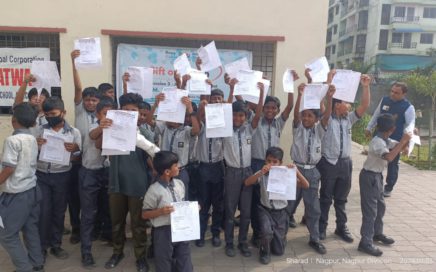Nagpur: In an unprecedented diplomatic engagement, a team of Chinese diplomats paid a visit to the Smruti Mandir of the Rashtriya Swayamsevak Sangh (RSS) in Nagpur in the first week of December, media reports said. The RSS is notable for its ideological disapproval of China and criticism of Chinese expansionist policies.
According to the reports, the visit, which transpired in early December, marked the first instance of Chinese diplomats of any level setting foot in the headquarters of the RSS. The delegation comprised middle-ranking officials from the Chinese consulates in Delhi and Mumbai. Despite their inability to rendezvous with RSS chief Mohan Bhagwat due to his absence, they were cordially received by a senior RSS functionary who escorted them around the campus.
The Chinese delegation also graced Wardha’s Mahatma Gandhi Antarrashtriya Hindi Vishwavidyalaya, a university renowned for offering courses in Chinese. This hints at a potential cultural exchange element associated with their visit.
The backdrop of this visit is accentuated by comments made by RSS chief Mohan Bhagwat in his 2020 Vijaya Dashami speech. In his address, he brought to light the Galwan clash between India and China and underscored India’s need to augment its power in retaliation to China’s actions.
This may well be the first ever visit by a Chinese diplomat of any level to the Hindutva fountainhead. Lately, diplomats from a number of countries have visited the RSS campus. In 2021, Israeli envoy Kobbi Shoshani had attended the RSS Vijay Dashami function, which is held to mark its foundation day.
Last year, the British High Commissioner to India Alexander Ellis met Bhagwat and held an hour-long meeting with him, apart from going to the Smruti Mandir campus. The RSS has also received ambassadors from Germany, France and Sri Lanka in the last two years.
In an unrelated development, Chinese diplomats’ visit to the RSS headquarters has sparked an intensification of scrutiny regarding bilateral scientific cooperation and allegations of intellectual property theft. The United States has levelled accusations at Chinese entities of indulging in theft and espionage to expedite China’s technological progression. This has raised concerns about the impact on scientific collaboration between the two superpowers.
However, China has underlined its cooperation with US law enforcement and contributions to research and technology. Despite China’s advancements in high-tech industries, the United States continues to hold sway as the dominant force in the global innovation industry. This dominance is evident in its extensive private high-tech industry and superior universities.
The article challenges protectionism and underscores the mutually beneficial cooperation between the US and China for the good of humanity. Despite geopolitical tensions and disagreements, the path towards universal advancement lies in collaboration and mutual respect.

















